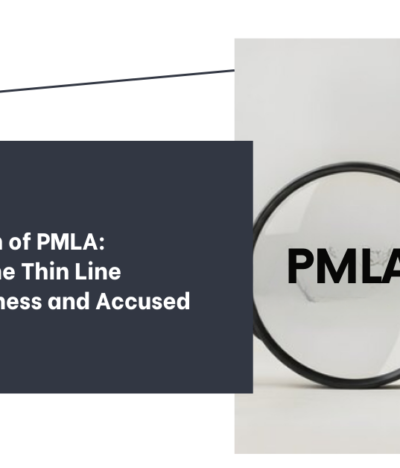FEMA in the Indian Startup Ecosystem
The Foreign Exchange Management Act, 1999 (FEMA), serves as the cornerstone of India’s legal framework governing cross-border financial transactions. For startups engaging in international fundraising, overseas expansion, or foreign remittances, strict adherence to FEMA is imperative.
This article provides a comprehensive overview of essential FEMA regulations that Indian startup founders must understand to ensure lawful operations and facilitate global growth.
Foreign Direct Investment (FDI) Compliance
Legal Obligations for Startups
Startups in India engaging in Foreign Direct Investment (FDI) must adhere to compliance framework under the Foreign Exchange Management Act (FEMA), 1999, and the Consolidated FDI Policy. Non-compliance can result in severe penalties and hinder future investment opportunities.
1. Entry Routes and Sectoral Caps
- Automatic Route: Permits 100% FDI in sectors like Information Technology and Software Services without prior government approval.
- Government Route: Requires prior approval for sensitive sectors such as multi-brand retail, defense (above 74%), and print media.
2. Pricing Guidelines
Shares issued to non-residents must comply with the pricing guidelines stipulated by the Reserve Bank of India (RBI). The valuation must be conducted as per internationally accepted pricing methodologies for unlisted companies.
3. Reporting Requirements
- Form FC-GPR: To be filed within 30 days of allotment of shares to a foreign investor.
- Form FC-TRS: Applicable for transfer of shares between resident and non-resident entities; to be filed within 60 days of transfer.
- Single Master Form (SMF): Consolidates various reporting requirements; to be filed through the RBI’s FIRMS portal.
4. Annual Compliance
- Foreign Liabilities and Assets (FLA) Return: Mandatory for all Indian companies receiving FDI or making overseas investments; to be filed by July 15 each year.
- Annual Performance Report (APR): Required for Indian entities with overseas direct investments; to be submitted annually.
5. Mode of Payment
All FDI transactions must be conducted through banking channels as per the Foreign Exchange Management (Mode of Payment and Reporting of Non-Debt Instruments) Regulations, 2019. Payments should be received via:
- Inward remittance through normal banking channels.
- Funds held in Non-Resident External (NRE) or Foreign Currency Non-Resident (FCNR) accounts.
6. Timeframe for Issuance of Shares
Equity instruments must be issued within 60 days from the date of receipt of the consideration. Failure to do so necessitates a refund to the foreign investor within 15 days after the expiry of the 60-day period.
7. Downstream Investment
Startups receiving FDI must ensure compliance with downstream investment regulations if they further invest in other Indian entities. Such investments are subject to the same norms as applicable to foreign investors.
8. Convertible Notes
Startups can issue convertible notes to foreign investors, provided:
- The minimum investment per investor is ₹25 lakhs in a single tranche.
- The convertible note is converted into equity shares within five years.
9. Penalties for Non-Compliance
Violations of FDI regulations under FEMA can attract penalties up to three times the amount involved in the contravention or ₹2 lakh, whichever is higher. Continued non-compliance may lead to additional fines of ₹5,000 per day.
III. External Commercial Borrowings (ECBs)
External Commercial Borrowings (ECBs) are loans availed by Indian entities from non-resident lenders, governed by the Foreign Exchange Management (Borrowing and Lending) Regulations, 2018. Startups seeking to leverage ECBs must navigate a complex regulatory landscape to ensure compliance and mitigate legal risks.
1. Eligible Borrowers
Startups recognized by the Department for Promotion of Industry and Internal Trade (DPIIT) are eligible to raise ECBs under the automatic route, subject to adherence to prescribed norms. This includes entities engaged in sectors such as manufacturing, infrastructure, and software development.
2. Recognized Lenders
ECBs can be raised from internationally recognized lenders, including:
- International banks
- Multilateral financial institutions
- Export credit agencies
- Foreign equity holders with a minimum equity holding of 25% in the borrowing entity
3. Maturity Period and Limits
The minimum average maturity period for ECBs varies based on the amount and purpose of borrowing:
- For ECBs up to USD 50 million: Minimum maturity of 3 years
- For ECBs above USD 50 million: Minimum maturity of 5 years
Startups are permitted to raise ECBs up to USD 3 million per financial year under the automatic route.
4. All-in-Cost Ceiling
The all-in-cost ceiling, which includes interest rate, fees, and expenses, is capped at:
- 450 basis points over the 6-month LIBOR or applicable benchmark for foreign currency-denominated ECBs
- 450 basis points over the prevailing yield of Government of India securities of corresponding maturity for INR-denominated ECBs
5. Permitted End-Uses
ECBs can be utilized for specific purposes, including:
- Capital expenditure on new infrastructure and manufacturing projects
- Working capital requirements
- Refinancing of existing ECBs
- Payment for import of capital goods
Utilization of ECB proceeds for real estate activities, investment in capital markets, and equity investments is prohibited.
6. Reporting Requirements
Compliance with reporting obligations is critical:
- Form ECB: To be submitted within 7 days from the date of signing the loan agreement.
- Form ECB-2 Return: Monthly reporting of ECB transactions to be filed with the Reserve Bank of India (RBI) through the Authorized Dealer (AD) bank.
Non-compliance with reporting requirements may result in penalties and restrictions on future borrowings.
7. Security and Guarantees
Startups may provide security for ECBs, including:
- Charge on immovable assets
- Pledge of shares
- Corporate or personal guarantees
Creation of security must comply with the Foreign Exchange Management (Guarantees) Regulations, 2000, and requires prior approval from the RBI in certain cases.
8. Conversion into Equity
ECBs can be converted into equity shares, subject to:
- Compliance with the Foreign Exchange Management (Transfer or Issue of Security by a Person Resident Outside India) Regulations, 2017
- Adherence to sectoral caps and pricing guidelines
- Filing of Form FC-GPR within 30 days of conversion
9. Penalties for Non-Compliance
Violations of ECB regulations under FEMA can attract penalties up to three times the amount involved in the contravention or ₹2 lakh, whichever is higher. Continued non-compliance may lead to additional fines of ₹5,000 per day.
Startups must maintain meticulous records and ensure timely compliance to avoid legal repercussions and maintain investor confidence.
III. Overseas Direct Investment (ODI)
Eligibility Criteria for Overseas Investment
Indian startups planning to invest abroad must ensure they are registered entities under Indian law and are not classified as wilful defaulters or under investigation by regulatory authorities. Startups recognized by the Department for Promotion of Industry and Internal Trade (DPIIT) are permitted to undertake overseas direct investment (ODI) in compliance with the Foreign Exchange Management (Overseas Investment) Rules and Regulations, 2022.
Permissible Structures and Instruments
Under the revised ODI framework, startups may invest in wholly owned subsidiaries or joint ventures outside India by way of equity capital or debt instruments, or through the issuance of corporate guarantees. Such investments are permitted only if the foreign entity is engaged in bona fide business activities, and the Indian investor retains control or significant influence.
Modes of Funding
The permissible methods for funding overseas investments include remittance through authorized dealer banks, capitalization of exports or fees, share swaps, or proceeds from external commercial borrowings. Each transaction must be routed through formal banking channels and must adhere strictly to RBI’s procedural requirements under FEMA.
Reporting Requirements
Startups are mandated to file Form FC within 30 days of making the overseas investment, and an Annual Performance Report (APR) for each financial year by December 31. In the event of disinvestment or restructuring of the foreign entity, a separate disclosure must be submitted within the statutory timeline. All reporting must be routed through the RBI’s FIRMS portal.
Restrictions and Prohibited Activities
ODI by startups is not permitted in foreign entities engaged in real estate business (with limited exceptions), banking operations, or any sector that is prohibited in the host country. Due diligence must be conducted to ensure the legality of the activity in both India and the foreign jurisdiction to avoid penalties or reversals.
Valuation and Pricing Guidelines
When acquiring existing shares in a foreign entity, valuation must be carried out by a certified valuer using internationally accepted valuation norms. The transaction must be conducted at or below the fair value determined by such assessment to ensure compliance with pricing regulations under the ODI framework.
Penalties for Non-Compliance
Contraventions of ODI regulations may result in compounding penalties amounting to three times the sum involved or ₹2 lakh, whichever is higher. Continuous defaults may attract daily fines, and the Reserve Bank of India may further restrict or revoke the ability of the entity to make future investments.
IV. Inward Remittances
Understanding Inward Remittances under FEMA
Inward remittances refer to the receipt of funds from foreign sources into India. For startups, these can include foreign direct investments, payments for exported goods or services, or funds received for consultancy services. The Foreign Exchange Management Act (FEMA), 1999, governs such transactions to ensure legal compliance and maintain the integrity of the foreign exchange market.
Authorized Channels for Receiving Funds
Startups must receive foreign funds through Authorized Dealer (AD) banks, which are banks authorized by the Reserve Bank of India (RBI) to deal in foreign exchange. Utilizing AD banks ensures that the transactions are monitored and comply with the regulatory framework established by FEMA.
Foreign Inward Remittance Certificate (FIRC)
Upon receipt of foreign funds, the AD bank issues a Foreign Inward Remittance Certificate (FIRC). This certificate serves as proof of the inward remittance and is essential for various compliance and regulatory purposes, including the issuance of shares to foreign investors and for audit trails.
Disclosure of Source and Purpose
Startups are required to disclose the source of the foreign funds and their intended use. This includes providing details about the foreign investor or payer, the nature of the transaction, and how the funds will be utilized within the business. Such disclosures help in maintaining transparency and ensuring that the funds are not used for prohibited activities.
Documentation and Record-Keeping
Maintaining comprehensive records of all inward remittances is mandatory. This includes contracts, invoices, correspondence with foreign entities, and any other documents related to the transaction. Proper documentation ensures readiness for audits and inspections by regulatory authorities and aids in demonstrating compliance with FEMA provisions.
Compliance with KYC and AML Norms
Know Your Customer (KYC) and Anti-Money Laundering (AML) norms are integral to FEMA compliance. Startups must ensure that all foreign entities they engage with are verified, and transactions are screened to prevent money laundering and other illicit activities. Adhering to these norms protects the startup from legal repercussions and maintains the integrity of financial operations.
Timely Reporting to RBI
Certain inward remittances, especially those related to foreign investments, require reporting to the RBI within specified timelines. For instance, the receipt of funds against the issuance of shares must be reported through Form FC-GPR within 30 days of allotment. Timely reporting is crucial to avoid penalties and ensure ongoing compliance.
Penalties for Non-Compliance
Failure to comply with FEMA regulations concerning inward remittances can result in significant penalties. This includes monetary fines, reversal of transactions, and potential legal action. Startups must prioritize compliance to safeguard their operations and reputation.
FEMA Compliance in ESOPs and Convertible Instruments: Legal Considerations for Startups
Issuance of ESOPs to Non-Residents
Employee Stock Option Plans (ESOPs) issued to non-resident employees or directors must comply with the Foreign Exchange Management (Non-Debt Instruments) Rules, 2019. Startups offering ESOPs to foreign nationals are permitted to do so only under sectors where 100% Foreign Direct Investment (FDI) is allowed under the automatic route and without any FDI-linked performance conditions. Prior board approval, adherence to sectoral caps, and due valuation are necessary prerequisites before issuance.
Pricing and Valuation Guidelines
The issue price for shares under ESOPs or convertible instruments must conform to the pricing guidelines laid down by the Reserve Bank of India. For unlisted companies, a valuation must be conducted by a Category I Merchant Banker or Chartered Accountant using internationally accepted methodologies. This ensures transparency and prevents any under-pricing that may trigger scrutiny under anti-money laundering provisions.
Convertible Instruments under FEMA
Startups often raise capital through optionally convertible debentures, preference shares, or convertible notes. These instruments must mandatorily comply with FEMA provisions concerning the nature of the instrument, conversion timeline (generally within 5 years), and sectoral restrictions. Instruments with optionality clauses must reflect genuine equity intent and cannot be structured to evade foreign investment norms.
Convertible Notes by DPIIT-Recognized Startups
Convertible notes, introduced to facilitate early-stage fundraising, are permissible only for DPIIT-recognized startups. A convertible note is a debt instrument that converts into equity upon the occurrence of specified events, such as a qualified investment round. The minimum investment per foreign investor is ₹25 lakhs in a single tranche. The note must be converted into equity within five years and must be reported to the RBI via Form CN.
Reporting and Regulatory Filings
Startups issuing ESOPs or convertible instruments to non-residents must undertake timely filings under FEMA. Form ESOP and Form CN are required to be filed within 30 days from the date of issue. Additionally, startups must maintain a detailed cap table reflecting foreign holdings and regularly update authorized dealer banks and regulatory authorities to ensure compliance.
Post-Allotment Compliance
Upon conversion of convertible instruments into equity, Form FC-GPR must be filed with the RBI through the FIRMS portal within 30 days of allotment. Compliance also includes updating shareholding patterns and foreign investment limits, and if applicable, obtaining FIRC and KYC from the foreign subscriber’s bank.
Penalties for Breach
Non-compliance with FEMA provisions relating to ESOPs or convertible instruments can result in penalties up to thrice the amount involved or ₹2 lakh, along with daily fines for continuing default. The RBI may also direct the company to unwind or reverse the transaction, creating reputational and operational disruptions for the startup.
Conclusion
As Indian startups increasingly tap into global markets—whether through cross-border investments, international hiring, or foreign funding—understanding and implementing FEMA regulations is essential. Each stage of a startup’s growth—from incorporation and capital raising to international expansion—triggers specific compliance obligations under FEMA and associated RBI guidelines.
Errors in compliance, even if inadvertent, can lead to serious legal consequences including monetary penalties, regulatory scrutiny, and loss of investor confidence.
To ensure full compliance, it is imperative for founders to engage legal professionals well-versed in cross-border transactional laws and FEMA regulations. Timely legal intervention not only protects against liabilities but also enables startups to structure their operations and investments in a manner that is both efficient and legally robust.






